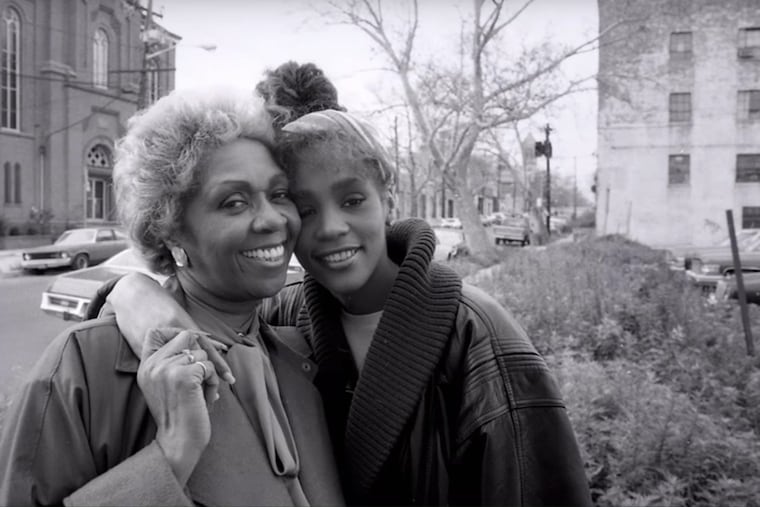‘Whitney’: A moving, revealing look at the life of Whitney Houston
New information about Whitney Houston's troubled family life informs the documentary 'Whitney.'

In Kevin Macdonald's haunting and revelatory documentary Whitney, we hear audio of subject Whitney Houston talking about a recurring nightmare that followed her throughout her life.
She was running from something, something big. A man? she wonders. The devil? In the dream, it never catches her, but she wakes up exhausted.
And that's where the movie ends — exhaustion registering in the face of Houston near her sad end, dead at age 48 in 2012. By that time we know why she's worn down, at least based on evidence presented by Macdonald, who's assembled credible and candid inner-circle witnesses to her story.
Whitney portrays Houston as a giver in a world of takers, trying (often without much help) to juggle music and money, a fracturing family, a "fluid" sexuality that many close to her did not condone. Later a toxic marriage that was often on the front page, and something else — a secret history of alleged child abuse unknown until Macdonald digs it up.
Is it any wonder she imploded?
In the end she had lost her voice, the straight-from-heaven miracle that her soul-singer mother, Cissy, noticed when Whitney was a young girl singing in church, always a place of happiness and refuge for "Nippy."
There is audio of Whitney saying that in her world, "you had to go to church whether you liked it or not. I loved it." She belonged there, if only because she sang like an angel. She was weaned on gospel, and as a young teen she learned from her professionally savvy mother to develop her voice the way a gifted, talented athlete develops muscles and movement.
Cissy, a brother says, "was tough on Whitney, because she knew what she had." She was also resolute, pushing her daughter to sing "legacy" music, with the chops and polish of a classic crooner and balladeer. Cissy knew what Whitney had, and soon, so did everybody — her 1985 debut album, Whitney, set sales records for a female vocalist, as did many subsequent singles, notably "I Will Always Love You."
She could do anything with her voice, except, perhaps, reveal to listeners how much suffering she had endured in her young life. She was devastated by her parents' divorce, by the infidelities that drove them apart. She thought her success would keep them happy and together, and of course she was wrong. She tried to keep family close in other ways – putting her brothers on payroll, paying her father as her business manager, her mother as her coach and enforcer. On the road, we learn, relatives doubled as drug suppliers.
Was Houston self-medicating? Certainly the pressures were multiple and severe. There was family hostility toward Robyn Crawford (not interviewed), the woman with whom Houston lived, and with whom the sexually "fluid" singer (a term used in the movie) had a long-term relationship.
It ended when she married pop star Bobby Brown, a famously fraught union – there is footage of Houston trying to help Brown through a recording session, help that he obviously resents. Houston's decline accelerates – soon she was unable to attend to her music, her daughter, or herself.
Macdonald has bombshell news here about child abuse allegedly suffered by Whitney and at least one brother, and Whitney is bit glib in holding up this news as an explains-it-all answer to her myriad problems. She had so many, and so little help.
Nonetheless, Whitney offers an informed and moving portrait of a complex, talented woman who was poorly understood, and often cruelly judged.
MOVIES
Whitney
Directed by Kevin Macdonald. Featuring Kevin Costner, Cissy Houston. Distributed by Roadside Attractions.
Running time: 2 hours
Parents guide: R (language)
Playing at: Area theaters